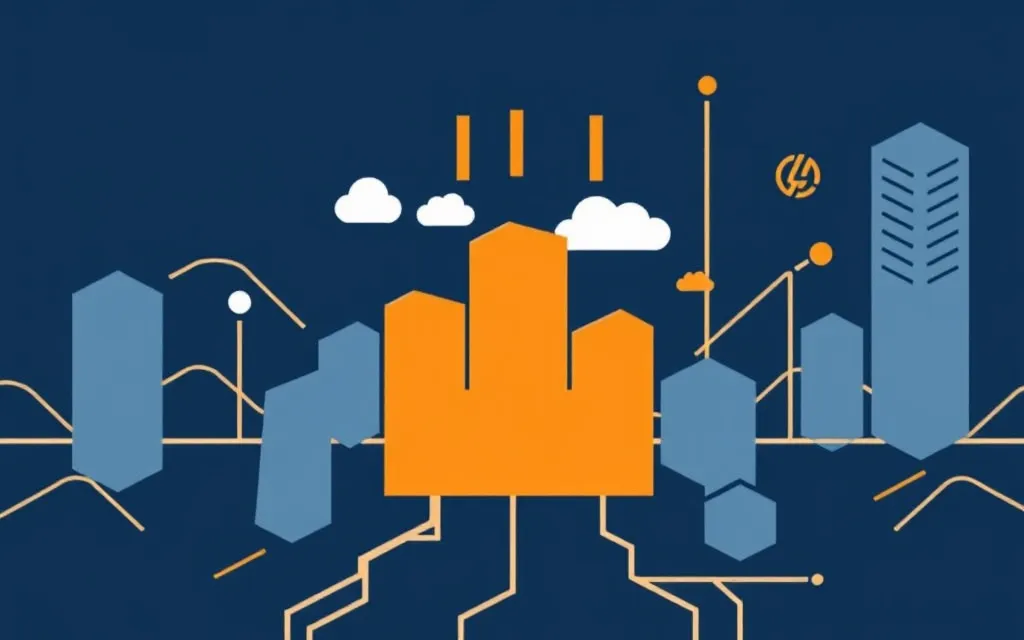
The Serverless Revolution: Transforming Cloud Computing
In the dynamic landscape of cloud technology, serverless computing emerges as a game-changer, liberating developers from the burdens of server management. AWS Lambda, at the forefront of this movement, exemplifies the serverless paradigm by executing code in response to events without the need for provisioning or managing infrastructure. This in-depth exploration of AWS Lambda uncovers its mechanics, advantages, diverse applications, and strategies for crafting cutting-edge serverless solutions.
Decoding AWS Lambda: The Heart of Function as a Service
AWS Lambda is Amazon Web Services' (AWS) innovative, event-driven cloud service based on a serverless architecture, also known as Function as a Service (FaaS). It empowers developers to run code in response to events like data changes, system state transitions, or user actions, without managing any underlying infrastructure. Supporting languages such as Java, Node.js, Python, and C#, AWS Lambda offers flexibility for a wide range of applications.
The Inner Workings of AWS Lambda
Lambda functions are activated by events from AWS resources, such as S3 buckets or DynamoDB tables, or custom triggers. Upon an event, AWS Lambda automatically allocates the necessary compute resources, executes the function, and scales the infrastructure according to demand. This seamless scaling is a hallmark of serverless computing, ensuring applications efficiently handle varying loads.
Creating a Lambda function involves writing the code, packaging it (typically as a ZIP file or container image), and deploying it on AWS. Once deployed, the function can be tested and managed via the AWS console. The pricing model is usage-based, calculated on the number of requests and execution time, with a free tier available for newcomers.
The Power of Serverless: Benefits and Use Cases
Unleashing the Benefits of AWS Lambda
The advantages of AWS Lambda are extensive:
- Effortless Scaling: Lambda automatically adjusts to demand, delivering optimal performance without manual oversight.
- Cost Savings: With a pay-as-you-go pricing model, developers only incur costs for actual usage, enhancing cost efficiency.
- Simplified Infrastructure: Developers focus on code, while AWS takes care of infrastructure, scaling, and fault tolerance.
- Versatile Event-Driven Execution: Lambda functions can be triggered by various events, allowing seamless integration with AWS and third-party services.
Diverse Applications of AWS Lambda
AWS Lambda's versatility shines across numerous scenarios:
- Web and Mobile Backends: Lambda functions streamline backend processes, enhancing scalability and reducing latency for web and mobile apps.
- Real-Time Data Processing: Enterprises harness Lambda for tasks like transforming Kinesis data streams or processing S3-file uploads.
- IoT Innovations: Lambda processes data from IoT devices, facilitating real-time analytics and decision-making.
- Machine Learning: With support for larger workloads, Lambda is ideal for executing machine learning models and handling extensive datasets.
Crafting Excellence: Best Practices for Serverless Architecture
To fully harness AWS Lambda's potential, consider these best practices:
- Enhance Function Performance: Reduce cold start latency by optimizing code and utilizing provisioned concurrency for latency-sensitive applications.
- Adopt Security Best Practices: Apply the Principle of Least Privilege for IAM roles and permissions in Lambda functions.
- Leverage Monitoring and Logging: Utilize AWS CloudWatch for monitoring and logging to troubleshoot and optimize Lambda functions.
- Design for Scalability: Decompose applications into fine-grained functions (nanoservices) to leverage Lambda's scalability effectively.
Pioneering the Future with AWS Lambda
AWS Lambda signifies a transformative shift in application development and deployment. By abstracting server management complexities, it empowers developers to innovate with agility and efficiency. Whether building a simple web app or a complex data processing pipeline, AWS Lambda provides the tools and flexibility for success in the serverless era. As more organizations embrace serverless computing, AWS Lambda will undoubtedly shape the future of cloud-based applications.
What are your thoughts on AWS Lambda's potential? How might you leverage its capabilities in your projects? Share your insights and explore further to deepen your understanding of serverless computing.

